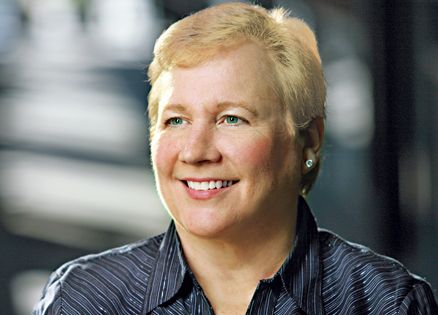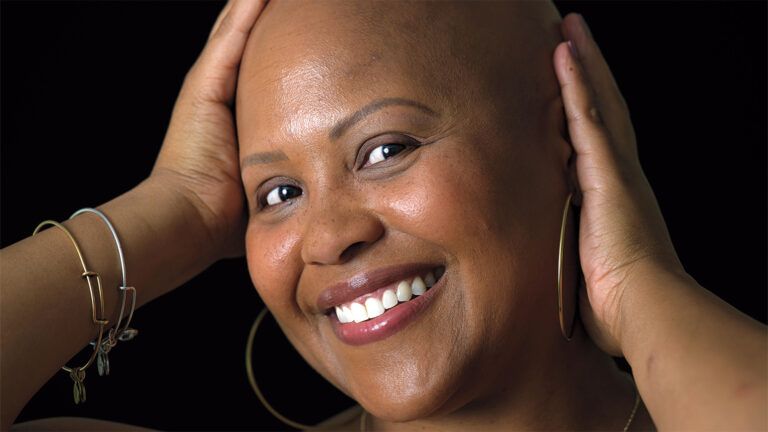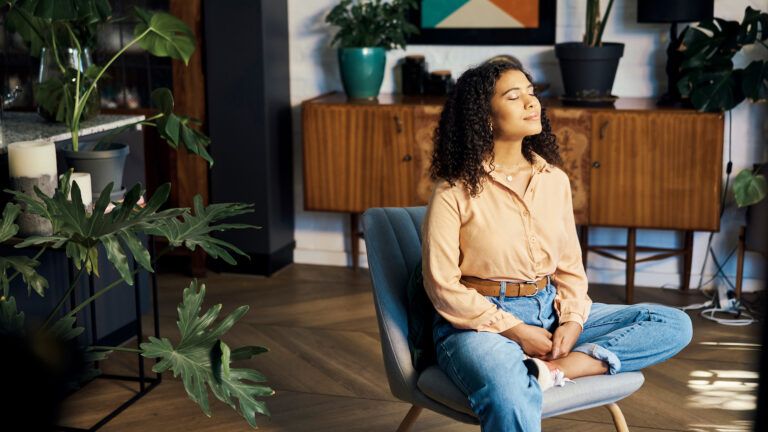The call comes to me at my office several times a day. I can detect the fear in the caller’s voice. I know that fear.
She’s just been diagnosed with breast cancer. She’s found my name on the website for the Johns Hopkins Breast Center, where I’m the director, or she’s heard about us from one of our patients. Now she just needs to talk to someone.
She dreads treatment or surgery. She doesn’t know if she’ll survive. Her voice chokes up.
“I know how you’re feeling,” I eventually say. “I’ve had breast cancer myself. I was afraid too.”
I can almost feel the relief surging through the phone line. And sometimes I steal a grateful glance across to the great rotunda where a figure towers above the building’s bustling lobby.
I wanted to be a nurse from the time I was a little girl. My mom loves to show off a black-and-white snapshot of me as a four-year-old in a nurse’s outfit with my doll’s head all bandaged up. It looks like I’ve performed a craniotomy on it.
When I first came to Johns Hopkins 29 years ago, I actually specialized in such patients. I worked for a neurosurgeon who treated people with malignant brain tumors and ruptured cerebral aneurysms.
The operations were long and in those days the hospital didn’t have a designated rep to inform the families of what was happening during surgery. I would go back and forth from the OR to the waiting room, reassuring loved ones as best I could.
I can’t pretend it wasn’t stressful. A hospital is a place of both suffering and healing. But I found the perfect way to soothe my frayed nerves.
In the rotunda at the Broadway entrance was a 10-foot-high marble statue of Jesus, the Divine Healer. I could never walk by it without touching the toes and looking up to the serene face of Christ.
I asked God to give my patients strength to cope with what lay ahead, and myself the wisdom to help them. Sometimes I’d hum a hymn, one of the beautiful ones my mother sang in our small Methodist church. It always brought calm and reassurance.
Eventually I moved to administration. Hospitals had entered the era of managed care, and cost containment was imperative. I became the director of performance improvement—quite a title. I was constantly putting out fires.
“Lil, you’re going to burn out yourself before you’re forty,” my husband, Al, would warn me. But I cared about the hospital, even if I missed direct work with the patients.
One perfectly ordinary morning when I was 38, I felt something unusual in my right breast. I assumed it was just a blocked duct, something I’d had before. It would go away.
I had a mammogram, which showed it was a cyst that had returned. It was easily aspirated by the radiologist. He decided to do a baseline mammogram of my other breast, the left one, and there he saw something that actually warranted a biopsy.
Now I was the patient, frightened and unsure.
I was convinced the biopsy would be negative for cancer. Unfortunately, my doctor would not return from a conference for another few days. Because of my position at the hospital, I knew where to find the pathology report. I logged on to the data bank to see what my report was.
The words blurred in front of me: “ductal carcinoma…multiple foci…carcinoma.” I stared at the computer screen, expecting the grim reaper to rise out of it, then logged off hastily.
I hurried out of the hospital. I walked faster past the oncology corridor. For the first time I could remember, I didn’t touch the foot of the Divine Healer when I passed. Didn’t pray. Didn’t even look up.
Al is a truck driver and he was still on the road. I kept trying to think of some joke I could say to him, some way of laughing it off. But the minute he walked through the door, I blurted out, “I have breast cancer.”
His face was a mask of shock. Without a word he hugged me hard, as though he could squeeze the cancer out. “We’ll fight this together,” he finally said. “We’ll beat it together.”
I like to keep things under control and I was firmly convinced that I could control this. I scheduled a surgery date in eight weeks. It would be a full mastectomy of the left breast because there were multiple areas of cancer.
But first I had to clear off the work on my desk. As the weeks passed, I discovered there was one thing I couldn’t control: my fear.
Very early on the morning of the surgery, Al drove me to the hospital. I was wearing some old sweatpants. No makeup. In the half-empty lobby, at 5:30 A.M., the first person I saw was our hospital chaplain, Clyde Shallenberger. “What are you doing here at this ungodly hour?” I asked.
“What are you doing without your work clothes on?” he asked.
Clyde was shocked to find out that I was having surgery. “My network at the hospital has failed me,” he said. Then he added in a softer tone, “There are no ungodly hours anywhere. God is with us all the time.”
Upstairs I shed my sweats and got into my gown. Al kissed me. I was walked into the OR. I looked up at the bright lights. They strapped my arms and legs down. They connected me to an IV and put an oxygen mask over my face.
My heart was racing. Lord, I prayed, there is nothing more I can do but trust you.
Then, just before I fell unconscious, I heard a voice, a beautiful voice, my mother’s voice singing a hymn I hadn’t heard in years: “Today, on the highway I saw him/He gazed up and smiled at me/Today on the highway I found him/Jesus of Galilee.” The Divine Healer.
The surgery went well and Al was with me every step of the way in the days and weeks that followed. One thing unnerved me. I dreaded him seeing the scar where my left breast had been. I’d made a deal with him beforehand.
“I won’t show you what I look like until I’m ready,” I said, “and when I do, I want you to show me your smile without your dentures.” In all our years of marriage I had never seen Al without his dentures.
The morning of my discharge from the hospital, while my surgeon was changing my dressing, he blithely called Al into my room. I was horrified. “You look fine,” Al said, hugging me hard again. “We’ll be fine.”
I still haven’t seen him without his dentures! I keep telling Al he owes me.
Not long after my operation I got a call from one of the hospital’s doctors. “My secretary has just been diagnosed with breast cancer,” he said. “She’s terrified. Can you talk to her?”
“Of course,” I said.
I guess you could say that I found my new calling that day. Personal experience as a breast cancer survivor had deepened my understanding of what a patient feels emotionally, physically, even spiritually.
And there were so many little things to do to help patients. For instance, what could be done to shorten the wait on test results? That alone would relieve an enormous amount of apprehension for women and their families.
What could we do to reassure them that their relationships with their spouses would survive, even strengthen? Couldn’t we better prepare them for how they would feel after surgery? Encourage them to give themselves time to heal and rediscover life?
I had to undergo a second mastectomy for breast cancer just two years later and then finally got breast reconstruction a decade after that. All the while, I kept volunteering with breast cancer patients, counseling and comforting them. That led to the wonderful job I have today.
Every time I receive a phone call from someone who has just gotten the scary news, I feel I’m right where I’m supposed to be. I’m in an office with a view across to the rotunda where my favorite statue stands, where there are no ungodly moments ever.
Download your FREE ebook, The Power of Hope: 7 Inspirational Stories of People Rediscovering Faith, Hope and Love






